Last Updated: 1 year ago
Are you worried that your mother cat is rejecting her kittens or that the mother is spending too much time away from her little ones?
Usually, cats are excellent mothers and will even raise kittens that aren’t theirs.
However, some first-time mothers have a rough time.
So, today we’re going to talk about seven common reasons why do cats reject their kittens.
7 Reasons Why Do Cats Reject Their Kittens
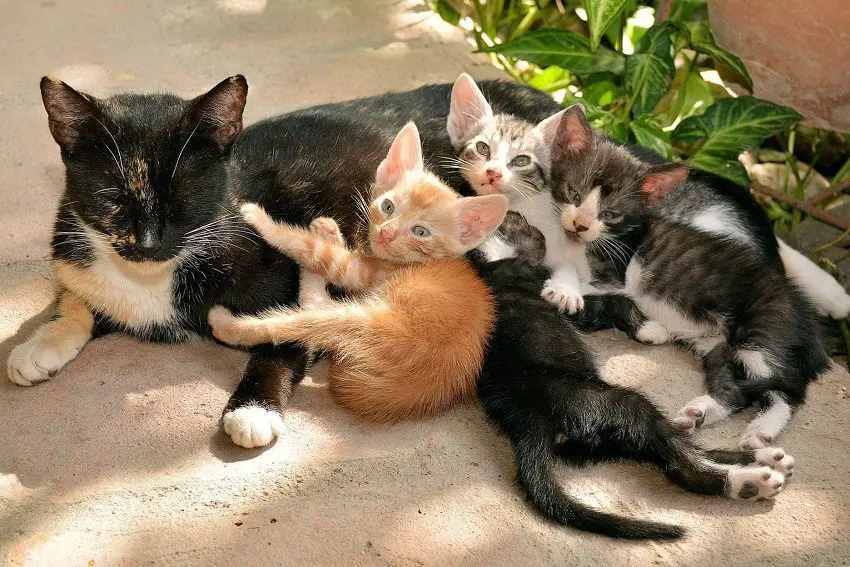
When people find a litter of kittens outside, they immediately think that the mother has abandoned them. But it’s normal for the mother cat to leave her kittens from time to time.
How long a mother cat can be away from her kittens depends on their age. Newborn kittens need their mother full-time because they’re born deaf, blind, and unable to move.
Most mothers don’t leave the nest for the first few days unless they have to feed or go to the bathroom.
However, once the kittens are older, the mother will be away for a couple of hours, looking for food and having some me time to rest between feedings.
They’re not abandoning their kittens. Unfortunately, some cats do reject their newborns and refuse to feed and care for them. Usually, there’s a very good reason why.
1. The Mother Lacks Experience
Cats can come in heat when they’re as young as four months and might give birth when they’re around 6-7 months. These cats are too young to be mothers.
Any first-time mother can be overwhelmed by her meowling kittens or stressed by the birth and reject her offspring. Even older cats can freak out when they become mothers for the first time.
If a cat doesn’t know what to do with the kittens, they might bright the kittens to you, looking for help.
Others might hiss at their little ones or run away from the nest shortly after the birth.
Unfortunately, mother cats suffocating their kittens due to a lack of experience is also possible.
Some cats sit on their kittens to hide them whenever they’re feeling anxious and stressed, and they might smother them by accident.
However, it’s normal for a mother cat to ignore her kittens while still in labor. She should start taking care of them when the last one is born.
2. Mother Is Gravely Ill
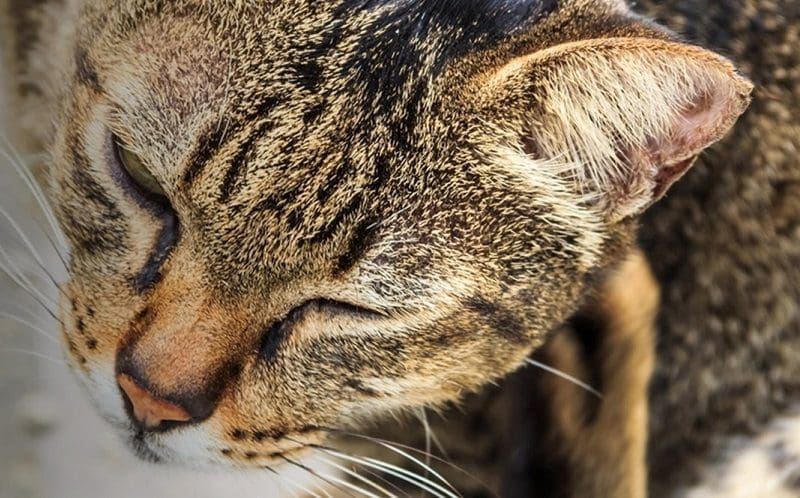
Cats rarely have problems giving birth, but it happens. Sometimes, the cat might not be able to deliver all the babies, or part of the placenta might remain inside.
In such cases, the mother will become progressively lethargic and weak. She won’t have the strength to care for her newborns and will neglect them.
You have to watch the mother cat for excessive bleeding and smelly discharge, which point to an infection.
Other signs of illness include fever, depression, a lack of appetite, and drastic changes in behavior. Some cats also develop milk fever a few weeks after the kittens are born.
It’s the result of dangerously low levels of calcium (lost through milk) in the blood. It’s a life-threatening condition that requires urgent medical care.
The usual symptoms of milk fever are uncoordinated movements, panting, muscle spasms, and an increased heart rate.
But one of the first things you’ll notice is that the mother is ignoring her kittens because she’s not feeling well. Milk fever is more common in large litters, first-time mothers, and malnourished felines.
One of my foster cats had it for a couple of days with a litter of five kittens, and it was a scary experience. Don’t take it lightly.
3. The Mother Has Mastitis
A cat might stop feeding her kittens if she has mastitis. It’s breast inflammation that causes swelling and pain and makes nursing too painful for the cat.
The usual signs of mastitis are fever, lack of appetite, and thick, yellow milk. The affected breast area will be warmer to the touch and redder than the rest of the nipples.
The cat might meow or hiss while the kittens are nursing. Usually, mastitis is the result of a bacterial infection.
Kittens might scratch their mother while they’re fighting for the nipple, and bacteria might enter the body. That’s why you should keep the nest spotless.
Mastitis is also likely if you notice that your kittens aren’t gaining as much weight as they should. The milk can’t pass well through the blocked nipples, and the little ones remain hungry.
You should take your cat to the vet if you suspect mastitis. She will need antibiotics to treat the infection.
Moreover, the kittens shouldn’t nurse because the milk is contaminated with bacteria.
4. The Mother Doesn’t Have Milk
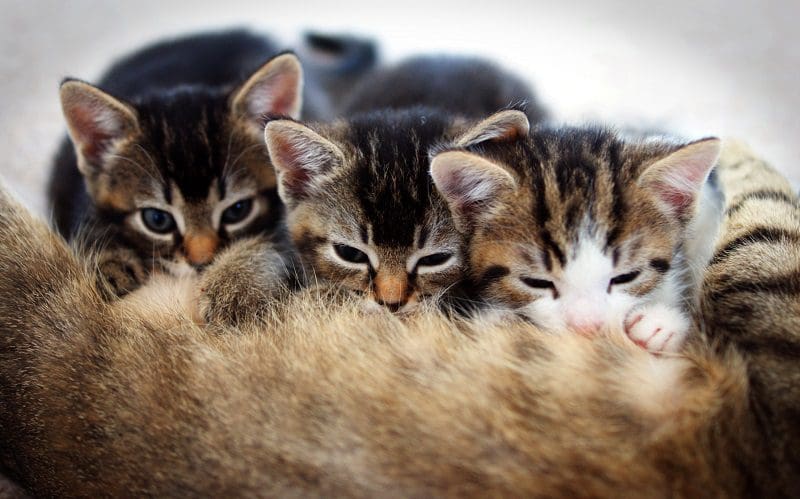
Rarely, a mother cat might not have milk to feed her kittens. It might be a genetic condition that prevents her from lactating, physical defects, or malnutrition.
Extreme stress might also prevent lactation because oxytocin (the happiness hormone) is missing.
So, how do you tell if a mother cat is feeding her kittens?
If the kittens are restless, meowing, and constantly looking for a nipple to sit on, the mother might not have milk. Moreover, you’ll soon notice that they’re failing to gain weight.
In large litters, the mother might also stop feeding some of the kittens because she doesn’t have enough milk for everyone.
You’ll have to step in and bottle-feed them to help them survive.
5. Lack of Maternal Instinct
As a child, I had one cat that failed to raise kittens several years in a row. She would forget about them, leave them alone for hours, or kill or eat them.
If spaying/neutering were such a commonplace thing back then, we would probably have fixed her.
This experience taught me that not all cats develop a maternal instinct after the kittens are born.
As it turns out, hormones play a role in activating this instinct, so some cats with hormonal diseases or imbalances never make good mothers.
Such cats might suffocate their offspring, attack them after birth, or hiss at them as if they were unfamiliar cats.
You might have to separate the two if you want to keep the little ones.
6. The Kittens Are Ill
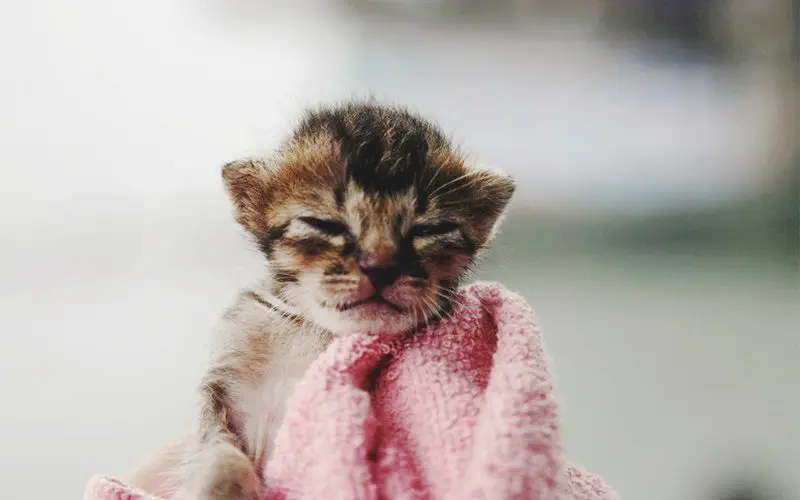
Another reason cats reject kittens is illness.
While the little one might seem healthy to you, the mother can smell that something is wrong. The kitten might be born with a birth defect, have a runt, or be too weak to nurse.
Birth and nursing put a lot of strain on a cat’s body, and it will take months for your cat to recover.
From your cat’s perspective, there’s no point in wasting effort nursing sick kittens.
So, the mother might stop caring for the weak kittens or the whole litter if she doesn’t think that the kittens will survive.
7. The Kittens Are Ready to be Independent
All cats start to ignore their older kittens sooner or later. So, it’s normal that a cat will reject her kittens when they’re about 3–4 months old.
Most specialists recommend that kittens remain with their mothers until they’re 12 weeks old.
By that time, some cats might start growling at their older kittens or “beat” them when they attempt to nurse.
Even if the kittens remain with their mother, she will chase them away until they stop seeking her to feed.
While it’s heartbreaking, there’s nothing you can do to stop it. It’s part of the growing-up process.
Will a Mother Cat Abandon her Kittens if Touched by Humans?
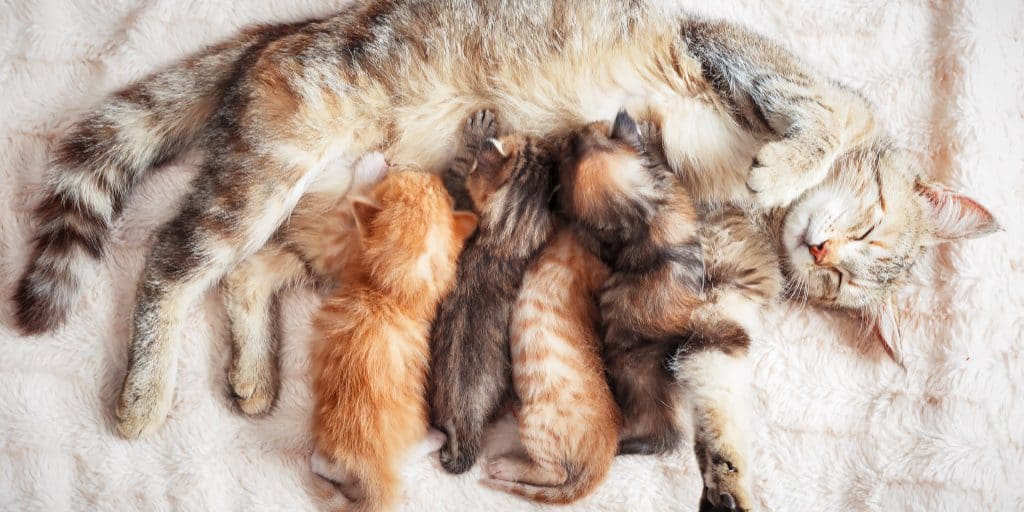
One of the most widely spread misconceptions I’ve encountered is that a cat will abandon her kittens if you touch them.
That’s not why cats reject their offspring. What some mother cats do when you touch their kittens is move them somewhere away from you.
In the process, Mama might forget one of the kittens or return for it much later. To you, it might look like the mother has rejected her child.
I’ve raised several litters of kittens, and I’ve touched them from the very first moment without any issues.
As long as the mother doesn’t growl at you, there shouldn’t be a problem handling the young ones briefly.
Moreover, kittens need socialization. If you don’t handle them when they’re young, kittens will grow up suspicious of humans.
So, they will never turn into lap cats or be comfortable in human presence.
Wrap-Up
While it’s normal for a mother cat to growl at her older kittens, it’s worrisome if your cat ignores her newborns.
You should take the mama and the kittens to the vet to rule out an illness and hand-raise the little ones if the mother doesn’t want them.
What do you think about these 7 reasons why a mother cat rejects her kittens? Has it ever happened to you? Share your experience in the comment section.
References:
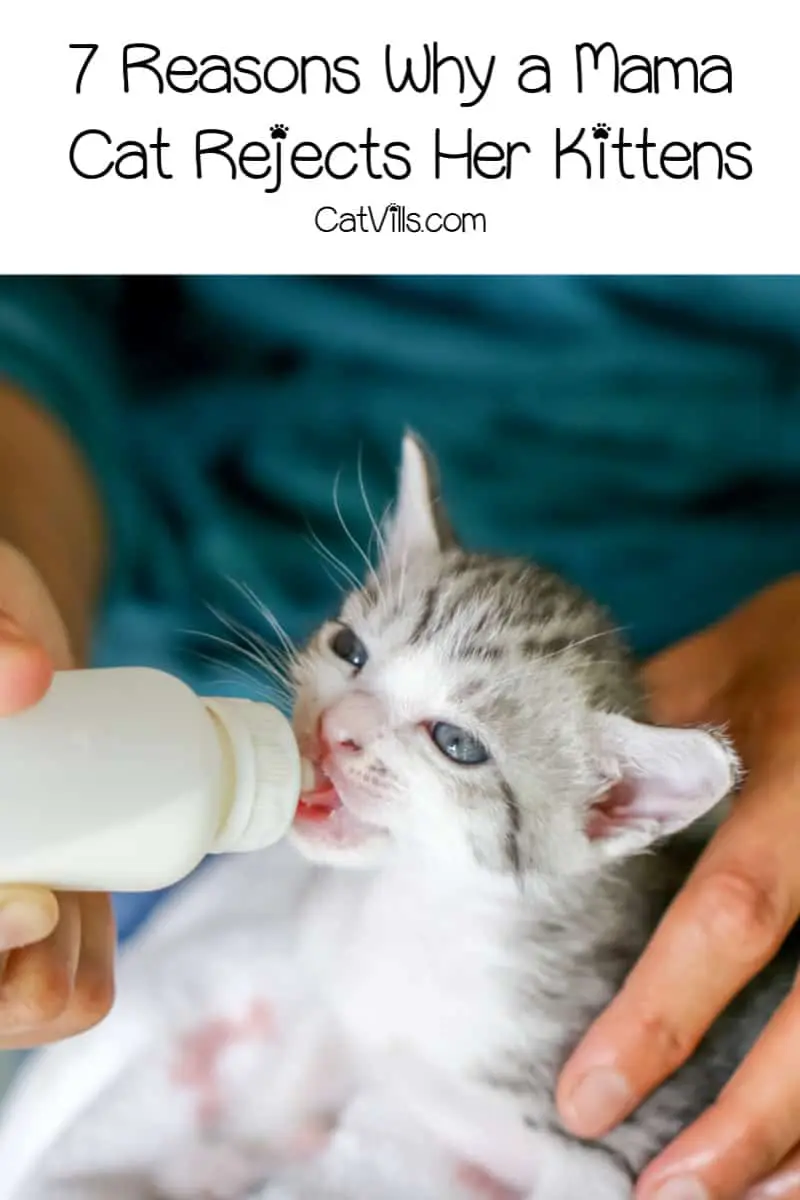

It’s very interesting to read how cats deal with their kittens. Animals are such a wonder to watch – have to admit I am not a cat person… think because I don’t like them, it makes them like me even more! :/
Nature works in mysterious ways! It can be saddening when we see a mother car abandon her kittens but it’s interesting to understand the various motives behind that kind of behaviour.
I knew kittens were born blind, but never knew they were deaf too. My kitten came in heat at just 4 months old, which I also never knew could happen so young.
The idea of a mother rejecting her kittens is quite sad, but it’s generally for an actual reason. Hopefully this doesn’t happen too often x
This is a very helpful article for pet owners. I would have loved my cat to have kittens
Good info but still does not answer why mama cat will completely ignore one over another. Also, is the one being ignored usually a male or female kitten and does the mother take the one away?
I had a cat that completely rejected her kitten..she had one the first time, she ignored..2 the next litter..she rejected them also, after that she didn’t have anymore litters.Now I have a Calico cat and she was the most doting mother..then at 3 months old exactly, she would slap them..growls at them and hisses at them, they don’t try to nurse on her, they have been eating on their own for quite some time now.I was shocked to see her go from doting mama cat to mean mama cat.She also seeks them out to slap them as they don’t bother her.
I have a mama cat with a litter that is nine weeks old and she has turned into a mean mom after being the best mom. Now all she does is hiss and growl at them. It’s really sad. Fortunately they have new families, so should I get them away from her?
i have a cat she has had 2 litters, and she refuses to feed them and they died we tried feeding them replacement milk, but they refused to eat it what makes her not want to feed her babies?